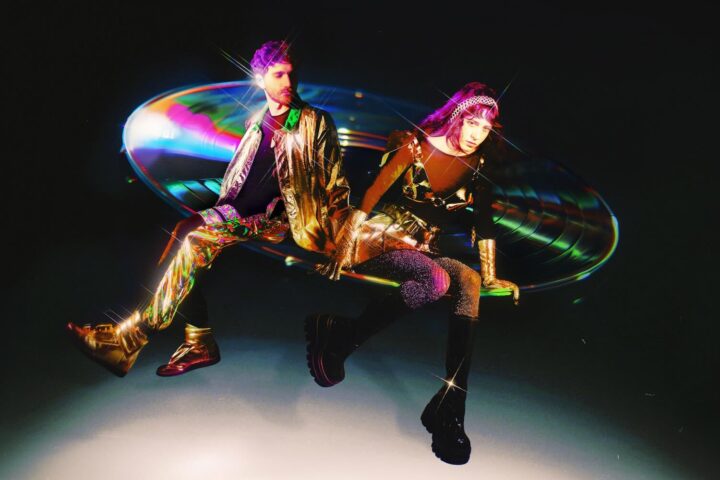Yeule’s 2022 album Glitch Princess is a crystalline piece of conceptual electronica that offers a bleak take on transhumanism. Smack in the middle of it is an emo-pop lullaby, “Don’t Be So Hard on Your Own Beauty,” that’s free of the gauzy distortion that defines the Singaporean nonbinary pop artist’s sound. The song’s sparse acoustic production foregrounds Yeule’s tortured relationship with love and self-image and links them to a decades-long history of alt-rock music revolving around mental health.
With Softscars, Yeule extends the ideas presented on “Don’t Be So Hard on Your Own Beauty” to album length, pairing similarly brutal lyrical content with blissfully fuzzy soundscapes. Like Yeule’s past music, particularly 2019’s stellar Serotonin II, the album is awash in noise that sometimes obscures their voice, rendering it as a ghostlike presence calling out from a memory.
Yeule’s performance on the shoegazey “Sulky Baby” is especially ethereal as they sing about being caught in a maze, with love and acceptance ultimately providing the way out for them. In turns soothing and nightmarish, the song depicts the singer as “emptied out, dead,” and so hungry for intimacy that they declare at one point, “I wanna eat your face.”
The title track further explores this concept of distorted love, using chilling imagery of skin lesions as a metaphor for a toxic relationship. The way that Yeule sings the words “soft scars” brings to mind ’90s alt-rock singers like Alanis Morissette and Dolores O’Riordan, while the glitchy production seamlessly melds the artist’s disparate influences, from vintage dream pop and trip-hop to more contemporary offshoots like hyperpop and hexd.
While Glitch Princess featured some of the most theatrical production in Yeule’s catalog, their vocals were largely hushed and delicate throughout. On Softscars, however, the singer pushes their voice to new extremes, adopting a loose approach to their pitch and tone, even snarling like a punk rocker on the album’s opening track, “x_w_x.”
Likewise, Yeule delves deeper into their established thematic territory, directly addressing their identity on the Y2k pop-rock throwback “Cyber Meat” and unpacking their persistent sense of invisibility on “Ghosts,” a hypnotic but vividly sketched dream-pop song. Even with such diverse influences and ideas as these, the album’s consistent layer of distortion and commitment to brooding unify the songs and solidify Yeule’s unique, and grim, musical style. With Softscars, Yeule expands, refines, and masters their creative vision.
Since 2001, we've brought you uncompromising, candid takes on the world of film, music, television, video games, theater, and more. Independently owned and operated publications like Slant have been hit hard in recent years, but we’re committed to keeping our content free and accessible—meaning no paywalls or fees.
If you like what we do, please consider subscribing to our Patreon or making a donation.





